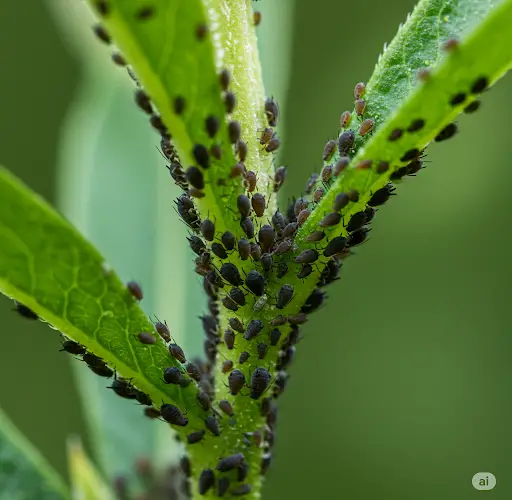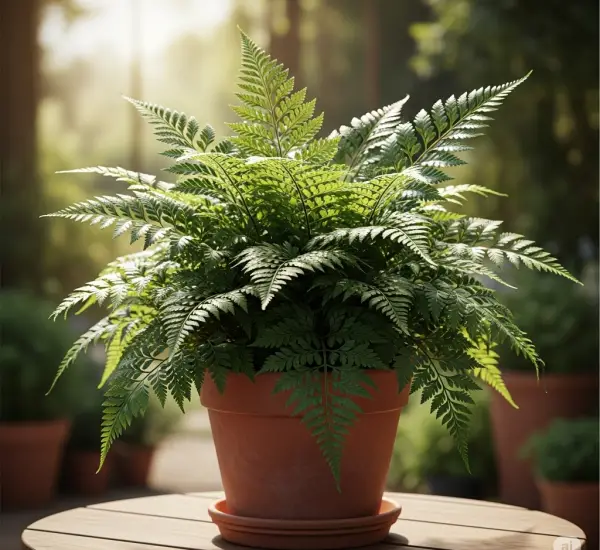If you’ve ever found your roses, tomatoes, peppers, or fruit trees covered in sticky clusters of tiny bugs, then you’ve likely had a run-in with aphids. These persistent garden pests feed on plant sap, stunt growth, and attract ants with the sugary residue they leave behind. They multiply quickly and can devastate a garden in just a few days if left unchecked.
Luckily, there’s a powerful and natural way to fight aphids — no harsh chemicals, no expensive products, just simple ingredients you likely already have at home. This homemade solution is safe for plants, pets, and pollinators, but it sends aphids running like wildfire.
Why Avoid Chemical Pesticides?
Many gardeners reach for chemical sprays when aphids appear, but these can:
-
Harm beneficial insects like ladybugs and bees
-
Contaminate edible crops
-
Damage delicate plants if used incorrectly
-
Lead to resistance, making aphids harder to kill over time
A natural approach is not only safer, but it can be just as effective when applied properly and consistently.
The Most Effective Natural Aphid Spray
This remedy uses a blend of soap, ash, garlic, and water — a combination that’s incredibly effective at both killing aphids and preventing them from coming back.
You’ll Need:
-
5 cloves of garlic
-
2 tablespoons of wood ash or baking soda
-
1 teaspoon of liquid dish soap or grated natural soap
-
1 liter (1 quart) of hot water
How It Works:
-
Garlic: A natural insect repellent with strong odor compounds that aphids hate.
-
Wood ash or baking soda: Creates an alkaline environment on plant leaves that discourages insects and fungi.
-
Soap: Breaks down the protective outer layer of soft-bodied insects like aphids, dehydrating and killing them.
-
Hot water: Helps extract the essential compounds from the garlic and blends ingredients smoothly.
Step-by-Step Instructions
-
Crush the garlic and steep it in hot water for at least 1 hour (overnight is even better).
-
Add the wood ash or baking soda and stir well.
-
Mix in the soap just before use. If using a natural bar soap, grate it finely and dissolve it fully.
-
Strain the solution through cheesecloth or a fine strainer to avoid clogging your spray bottle.
-
Pour into a spray bottle and shake before each use.
This solution is now ready to use as a contact spray and preventative treatment.
How to Apply
-
Spray the entire plant, focusing on the underside of leaves where aphids tend to hide.
-
Use early in the morning or in the late evening to avoid direct sun, which can cause leaf burn when wet.
-
Repeat every 3–5 days during heavy infestations, and once a week for prevention.
If rain washes the spray off, reapply as needed.
Tips for Better Results
-
Always test spray on one or two leaves before treating the whole plant, especially on delicate flowers.
-
If you’re dealing with a severe infestation, prune off heavily affected areas first to reduce the population quickly.
-
Aphids often bring ants that protect them in exchange for honeydew. If you see a lot of ants on your plants, consider sprinkling cinnamon, chalk powder, or coffee grounds around the base of the plant to deter them.
-
Ladybugs and lacewings are natural aphid predators. Avoid killing them with broad sprays and try to attract them by planting herbs like dill, fennel, and yarrow nearby.
Bonus: Garlic as a Soil Drench
Aphids sometimes lay eggs in the soil or come back again after a surface treatment. To tackle this, you can make a garlic soil drench to flush out hidden pests:
-
Mix the same garlic-water base (without soap or ash) and pour it around the base of infected plants.
-
This helps cleanse the soil of lingering larvae and deters root aphids and other soft-bodied pests.
Why This Method Works Long-Term
Aphids are soft-bodied, sensitive insects that rely on consistent access to healthy plants. This homemade spray not only kills them on contact but also leaves a lingering scent and residue that discourages future infestations.
Unlike chemical pesticides, this remedy:
-
Doesn’t harm the environment
-
Can be made from common household items
-
Keeps your garden safe for pollinators, children, and pets
-
Is easy to reapply as needed, with no risk of buildup or toxicity
Final Thoughts
With just garlic, a bit of soap, and some wood ash or baking soda, you can create a highly effective, natural aphid remedy that works fast and leaves your garden thriving. Aphids may be persistent, but they’re no match for this powerful blend.
Don’t wait until your plants are covered and wilting. Act now — spray your garden regularly with this all-natural solution, and you’ll keep aphids away without ever reaching for chemicals.



